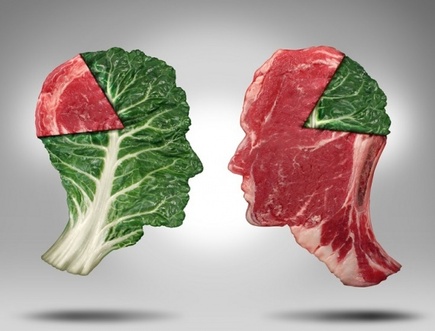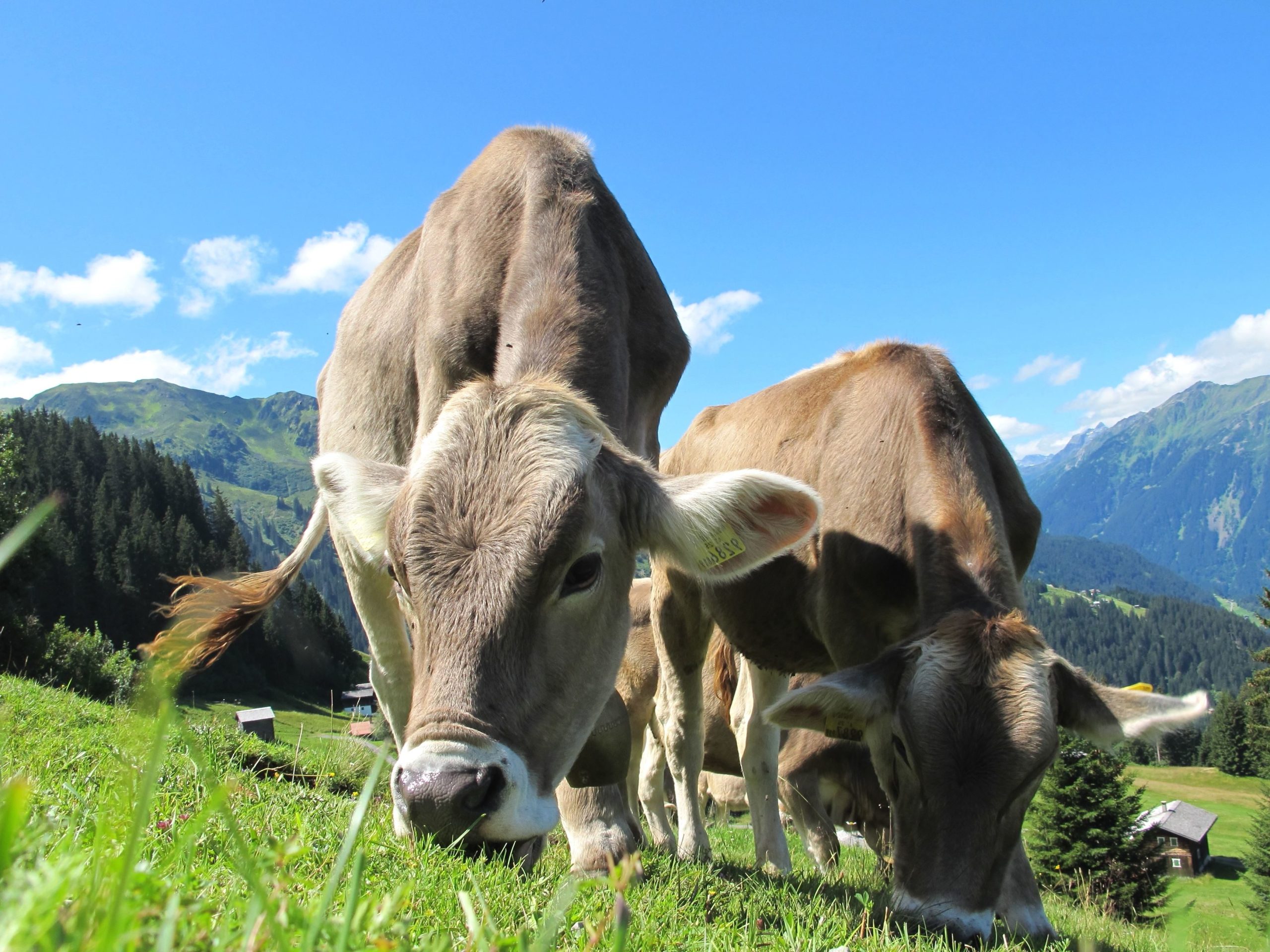There is an opinion that meat eaters cause more environmental damage than vegetarians, since animal agriculture pollutes the planet more. We decided to check if this idea is true.
It is written that the consumption of animal meat for food causes enormous harm to the environment. sitesdedicated to vegetarianism and environmental protection. The same statement appears in press And social networks. Even fast food chains are following the eco-friendly trend: KFC promises will soon introduce nuggets made from chicken fillet printed on a 3D bioprinter to the menu, and the TGI Friday's menu will already presented burgers with plant-based meat based on pea protein.
The main parameters determining environmental harm are carbon and water footprints. The carbon footprint includes the four gases (water vapor, carbon dioxide, methane and ozone) that accompany the production of a product or service. The total share of their content in the atmosphere is less than 1%, while they provide a huge impact on the climate, since they do not interfere with the passage of solar short-wave radiation, but delay outgoing long-wave radiation. Water footprint - the volume of fresh water used in the production of a product or service.
Along with appeals to ethics, vegetarians and vegans use the environmental argument to persuade meat-eaters to change their diets. They often point to UN data showing that livestock provides 14.5% of all anthropogenic (human-related) greenhouse gases in the atmosphere. However, other studies show more frightening statistics: the non-profit organization Worldwatch Institute assertsthat livestock farming is responsible for 51% of all greenhouse gases. This figure is more than the total amount of emissions into the atmosphere from the entire transport industry: land, water and air transport.
It should be noted that although growing plants requires huge amounts of water for irrigation, the water footprint of livestock farming is still more, because it includes not only the liquid that is required for the production of meat, milk and cheese, but also water for growing feed for livestock. At the same time, feed for the livestock industry amounts to almost 40% of all cereals grown in the world. Thus, based on the water footprint, animal agriculture, and therefore meat-eating, will always be more costly to the planet than growing and consuming plant foods.

It would seem that the numbers clearly indicate that meat-eating is the same blow to the environment as the release of unsorted garbage and pollution of the World Ocean. However, it's not that simple. Vegetarianism is by no means a panacea. For example, agriculture constantly requires new land, which leads to deforestation and a reduction in the number of trees - natural recyclers of carbon dioxide. Rice fields are a source of huge methane emissions - according to various estimates, their contribution to the production of this greenhouse gas amounts to from 7% to 17%. Beyond the damage to the planet itself, agriculture has negative influences on many species of animals: they are deprived of their natural habitat, technology kills a huge number of rodents, snakes and lizards, and mice and insects are actively poisoned in fields and warehouses. Such interference in nature also has a negative impact on the environment.

At the same time, the refusal of meat food in favor of vegetarianism in itself may not have a healing effect for the environment. For example, by replacing chicken in the menu with cheese, we only let's increase associated carbon footprint, since poultry farming causes less damage to the environment than raising cows or sheep. Choice pescatarian Diet (refusal of warm-blooded meat in favor of fish, shellfish and crustaceans) also does not solve the problem completely. Since to produce, for example, a kilogram of salmon required almost the same amount of resources as for meat production. And growing nuts (one of the key products in a plant-based diet) leaves the same water footprint as the production of almost all types of meat.
However, among all livestock products there is also a “record holder” for environmental damage - up to 65% of the carbon footprint from livestock farming connected with intestinal fermentation (belching and gases) of cows, sheep and goats. The share of these same gases in pig and poultry farming is amounts to only 10%. The remaining 25% of the carbon footprint is split between feed production, pasture maintenance and energy costs. Plant-based meat, again according to manufacturers, reduces water footprint is 99% and carbon footprint is 90%.
No less important from an environmental point of view is where the products that end up on our table are produced. In this case, local meat can be compared in carbon and water footprint with vegetables and fruits brought from another continent, because when calculating the footprint, not only production, but also processing and transportation of the product is taken into account.
It should also be noted that turning all pastures into fields impossible for climatic reasons. For example, 60% of the land in Sub-Saharan Africa is so dry that its only possible use is livestock farming.

Scientists have different views on the problem. Some, such as Ben Holton, a scientist at the University of California, offer build your diet around nuts, beans and fish, reduce your intake of animal protein to chicken once a week and red meat once a month, and promise to reduce greenhouse gases equivalent to a billion cars. Others are focusing on keeping red meat on menus while reducing the carbon footprint of its production. Thus, scientists from the Australian James Cook University tested dozens of different additives to feed for cows and done conclusion that the seaweed Asparagopsis taxiformis reduces methane emissions by 99%.
Thus, although the production of red meat is indeed associated with the release of large amounts of greenhouse gases and the use of more fresh water, a total rejection of animal food and the transition to vegetarianism cannot be considered a panacea for the environment, since the production of agricultural crops also causes significant harm.

This is not accurate
Read on the topic:
- BBC: Why giving up meat won't save the planet and what parrots teach us
- BBC: What would happen if everyone suddenly became vegetarian
- Ecologist: universal vegetarianism will not save the planet from global warming
If you find a spelling or grammatical error, please let us know by highlighting the error text and clicking Ctrl+Enter.






